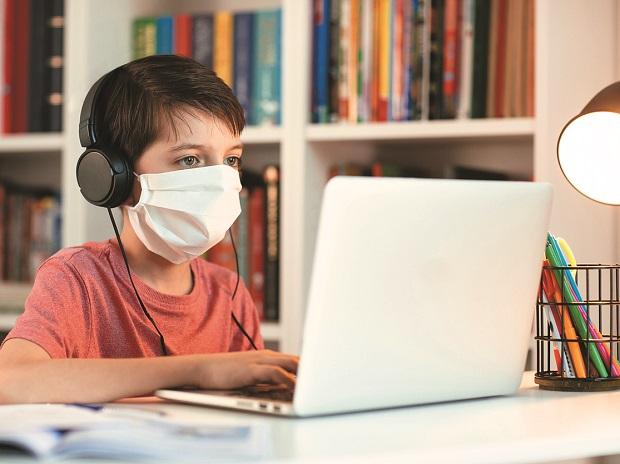Enough rehearsals were held by the time the online classes began three months ago.
The Union education (erstwhile HRD) ministry’s guidelines this week to states for starting online classes for school students from 1 September has upended speculation over possible scrapping of academic year 2020-21, due to unabated spread of Covid-19 across India. Many states in the country have already commenced online classes. But the experience of Kerala is interesting for academics and administrators.
As education is a subject of the Concurrent List in the Constitution, the Centre has issued guidelines, but the onus of carrying out the online classes actually rests with the states. Some states have exclusive satellite channels for educational purposes, while others depend on the public broadcaster, Doordarshan. Online classes are offered through apps like Zoom etc.
Kerala has started them as early as on 1 June. Its educational project, Victers-KITE (Versatile ICT Enabled Resource for Students-promoted by Kerala Infrastructure and Technology for Education) has taken up the task of launching online classes for around 45 lakh students from primary to higher secondary levels in the state.
Kerala started preparations well in advance, in April, and swung into action by May. Enough rehearsals were made by the time the online classes began three months ago. Surveys were conducted on availability of TV sets in households of students who go to government schools. It was found that penetration of TV sets is far better than that of smartphones in rural areas. One interesting thing about Kerala is literacy awareness among its people. As the state cannot afford big industries or vast agricultural operations due to its geographical conditions, it has to depend on services sectors like tourism. The need for education has promoted higher literacy levels. This awareness has come in handy for motivating parents for online classes. In fact, Kerala is also the first state to be hit by Covid in the country and the first to realise the gravity of consequences of lockdowns. Both the government and teachers have realised that they had to turn to online classes so as to make up for possible delay in starting regular (offline) classes, beyond the scheduled reopening of schools by June second week. Victers is an educational channel that is made available to all the 45 lakh students from around 14,500 schools from Class 1 to Class 10 in Kerala. Of them, around 5,000 schools are run by the government, while around 7,500 are aided and the remaining 2,000 are unaided schools. The Victers is telecast in both the government-run and private channels that include cable and DTH platforms.
Keeping in view the spread of smartphones, KITE has made Victers available on Facebook and as a free application that can be downloaded on mobiles. Dedicated teams of teachers are roped in to prepare classes that, interestingly, are in accordance with the guidelines of the Union education ministry–shorter and simpler. Sources in KITE told me that some committed teachers have come forward to donate their personal money to set up big screens in villages which don’t have enough TV sets. For them, the teaching profession doesn’t have meaning unless they can reach (or teach) the students. Several teachers have also motivated parents to ensure that their children attended online classes at home.
Ensuring uninterrupted power supply in remote villages during the daytime–when online classes are held–is a challenge before the government. Teachers are trained to prepare online classes, which are quite different from those of the regular ones. Some special orientation classes are planned for parents in villages, explaining the importance of the online classes. The Telangana government is planning to send an official delegation to Kerala soon to study their online classes’ model. Telangana’s T SAT, educational channel, CEO R. Shailesh Reddy has said that Kerala’s experience in ensuring involvement of parents and teachers in online classes in government schools could be worth emulating. Though the presence of TV sets is higher than the availability of smartphones in rural areas, the government is planning to utilise social media and applications like Zoom for holding online classes. The Union education ministry’s guidelines say that online classes can be around 30-45 minutes with a gap of 15 minutes between two classes. Officials are now exploring ways to ensure two-way communication between students and teachers, if the former have doubts over the online classes. This may be addressed by the local teachers who can interact with the students through WhatsApp or other forms. After reviewing the feedback of every stakeholder, the Centre is expected to further improve online teaching soon.

